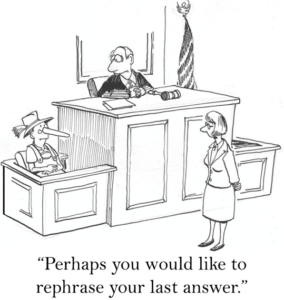
Commonly Confused Words: Eminent/Imminent
Must the threat of harm be imminent or eminent for a plaintiff to have pre-enforcement standing? Uses of Imminent: Imminent (adjective): Imminent is an adjective that refers to something about to happen very soon: “After their curt response to the cease-and-desist letter, a lawsuit was imminent.” Uses of Eminent: Eminent








